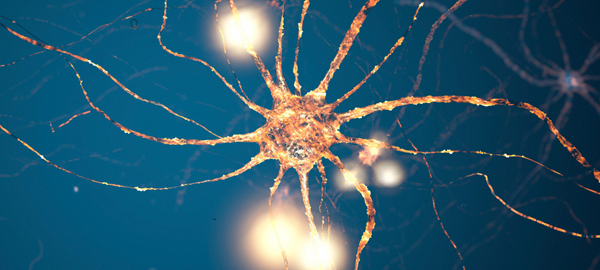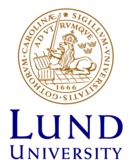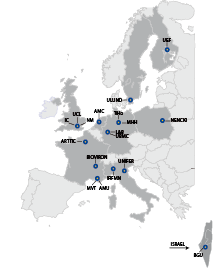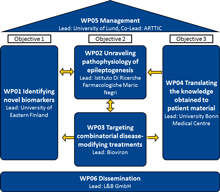Project Coordinator - Lund University
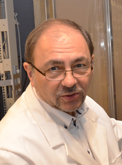 |
|
|
EPITARGET Team ULUND
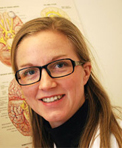 |
 |
Christine Ekdahl, MD PhDPI Inflammation and Stem Cell Therapy Group Phone: +46 46 2220550 Fax: +46 46 2220550 |
Esbjörn MelinPhD student Phone: +46 46 2220551 |
 |
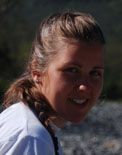 |
Una AvdicPre-PhD student Phone: +46 46 2220551 |
Jenny WickhamPhD student Phone: +46 46 2220552 |
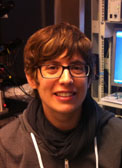 |
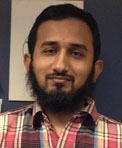 |
Tania Ramos Moreno, PhDPost doc Phone: +46 46 2220551 |
Idrish Ali, PhDPost doc Phone: +46 46 2220550 |
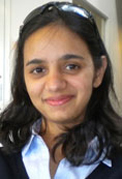 |
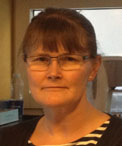 |
Deepti ChughPhD student Phone: +46 46 2220550 |
Susanne JonssonBiomedical scientist Phone: +46 46 2220550 |
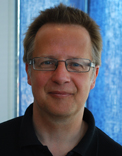 |
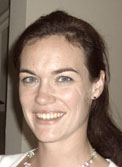 |
Magnus ZätterströmEconomist Phone: +46 46 222 81 44 |
Mirja Carlsson MöllerGrant Manager Phone: +46 46 222 0548 |
Institute Presentation
![]() University of Lund is one of the leading neuroscience research centers in Sweden. Here, Lund University is represented by the newly established
University of Lund is one of the leading neuroscience research centers in Sweden. Here, Lund University is represented by the newly established ![]() Epilepsy Center, a unique epilepsy research center in Sweden, where strong basic, preclinical and clinical epilepsy research is concentrated. Main research areas of the Center are mechanisms of epileptogenesis and ictogenesis, as well as exploring and developing novel treatment strategies for epilepsy, based on optogenetic approach, immunomodulation, and gene and stem cell therapies. The role of adult neurogenesis in epileptogenesis is also one of the main research topics of the Center. The Epilepsy Center is located within Lund University Biomedical Center (
Epilepsy Center, a unique epilepsy research center in Sweden, where strong basic, preclinical and clinical epilepsy research is concentrated. Main research areas of the Center are mechanisms of epileptogenesis and ictogenesis, as well as exploring and developing novel treatment strategies for epilepsy, based on optogenetic approach, immunomodulation, and gene and stem cell therapies. The role of adult neurogenesis in epileptogenesis is also one of the main research topics of the Center. The Epilepsy Center is located within Lund University Biomedical Center (![]() BMC), where neighbouring research groups explore other neurological diseases, such as neurodegenerative diseases, stroke, and depression. This creates a highly dynamic and scientifically stimulating environment, promoting close interaction and exchange of frontier research and ideas between scientists and students from different fields through common seminars and workshops. Epilepsy Center also has close collaborations with NeuroNano Research Center in Lund. Members of Epilepsy Center possess or have access to a wide range of methodological facilities, including advanced electrophysiological set-ups for patch-clamping, electrical kindling and SE sets of equipment, wireless video-EEG monitoring systems, confocal and 2-photon microscope, cell and brain slice culturing, established logistical solutions for electrophysiological recording from human surgically resected (from mTLE patients) brain slices (including patch-clam recordings), immunostainings, ELISA, Western blots, access to small animal 9.4 Tesla MRI and microPET imaging, viral vector production core and injection room (P2 level), etc. All this expertise and facilities are highly relevant to the project.
BMC), where neighbouring research groups explore other neurological diseases, such as neurodegenerative diseases, stroke, and depression. This creates a highly dynamic and scientifically stimulating environment, promoting close interaction and exchange of frontier research and ideas between scientists and students from different fields through common seminars and workshops. Epilepsy Center also has close collaborations with NeuroNano Research Center in Lund. Members of Epilepsy Center possess or have access to a wide range of methodological facilities, including advanced electrophysiological set-ups for patch-clamping, electrical kindling and SE sets of equipment, wireless video-EEG monitoring systems, confocal and 2-photon microscope, cell and brain slice culturing, established logistical solutions for electrophysiological recording from human surgically resected (from mTLE patients) brain slices (including patch-clam recordings), immunostainings, ELISA, Western blots, access to small animal 9.4 Tesla MRI and microPET imaging, viral vector production core and injection room (P2 level), etc. All this expertise and facilities are highly relevant to the project.
Professor Mérab Kokaia has many years of experience in epilepsy research, with a main interest in mechanisms of epileptogenesis and ictogenesis, particularly in exploring and developing novel treatment strategies based on optogenetics, gene and stem cell therapies. Prof. Kokaia has contributed to the epilepsy field by several major discoveries, among which the crucial role of neurotrophins in epileptogenesis, inhibition of epileptogenesis by cell transplantation, and, most recently, suppression of epileptifrom activity by optogenetic strategies could be mentioned.
Christine Ekdahl Clementson, MD PhD, is one of the leading researchers in the field of inflammation and neurogenesis in epilepsy. Her group is currently focused on the role of synaptic proteins, inflammation and neurogenesis as potential biomarkers and targets for therapeutic intervention in epilepsy. University of Lund have also contributed substantially to the stem cell field by discovering increased neurogenesis after epileptic seizures, and by exploring functional integration of newly born neurons into the epileptic tissue circuitry.





